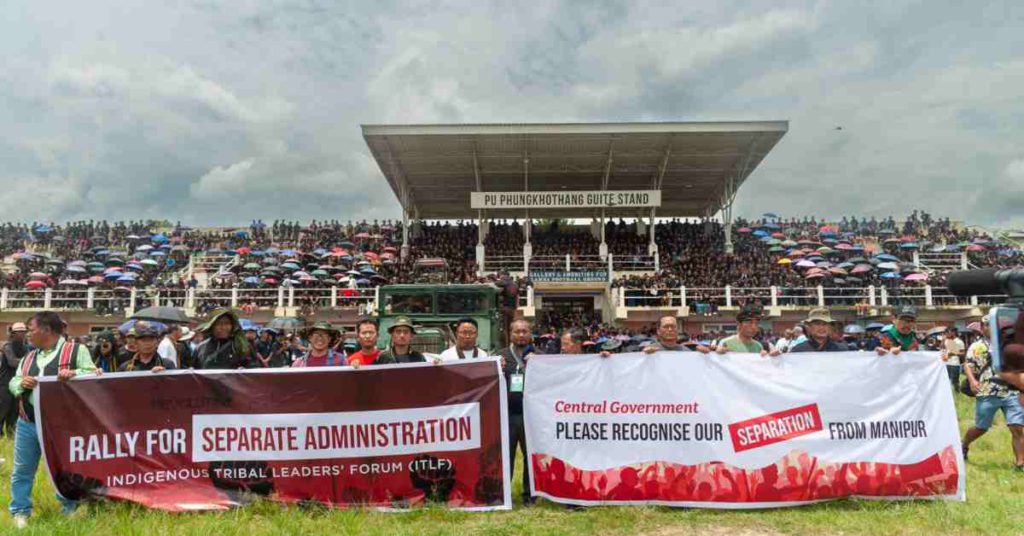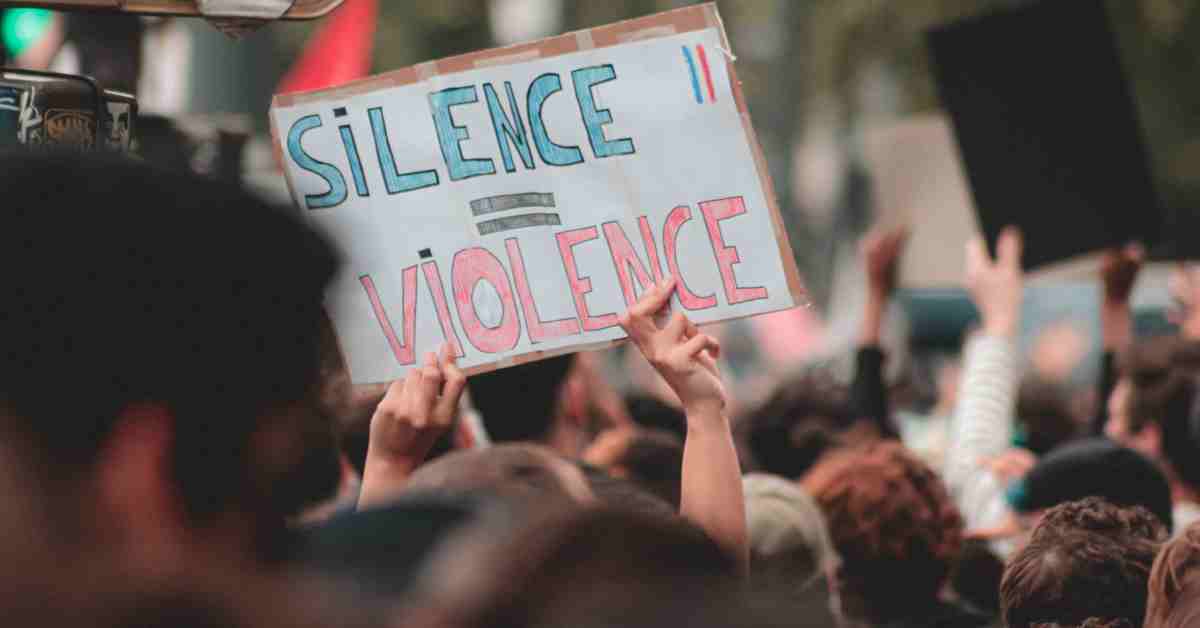INDIA. Manipur: In the serene landscapes of Manipur, an escalating crisis of ethnic clashes has left its mark on the hearts and souls of its people.
As the rift deepens between the Meitei and Kuki communities, a heart-rending tragedy unfolds, impacting lives forever. The present turmoil finds its roots in a historical narrative, where division and communal discord were sown during the British colonial era.
A historical tapestry: Seeds of discord
Manipur’s history bears the scars of British colonial rule, where the divide-and-rule strategy fostered animosity between the Meitei people of the Imphal Valley and the Kuki tribes dwelling in the surrounding hills.
Traditional practices and land rights were manipulated, igniting a volatile atmosphere of suspicion and hostility that continues to reverberate through generations.
Meitei’s demand for scheduled tribe status
The confluence of history and unresolved grievances came to a head on May 3, 2023, when the Meitei community voiced a long-standing demand for Scheduled Tribe status under the Indian Constitution.
This quest for recognition, akin to tribal communities, was rooted in their aspiration for socio-economic development and equitable representation.
The Kuki community’s concerns
The Kuki tribes, who were already classified as Scheduled Tribes, perceived the Meitei demand as a potential threat to their own benefits and privileges. Fear of dilution loomed large, driving opposition to the Meitei’s aspirations.
Has PM Modi failed in protecting Manipur?
Some people believe that he has not done enough to address the violence in the state, while others believe that he has been doing his best to restore order.
PM Modi has not visited Manipur since the violence began, and he has not made any public statements about the situation. This has led to some criticism that he is not taking the violence seriously.
There is no doubt that the violence in Manipur is a serious problem. Since March 2023, there have been over 100 deaths and hundreds of injuries in clashes between the Kuki and Meitei communities. The violence has also led to the destruction of property, including churches and schools.
The Home Ministry has said that it is providing all possible assistance to the Manipur government to restore order. The Ministry has also said that PM Modi is closely monitoring the situation.
Ultimately, whether or not PM Modi has failed in protecting Manipur is a matter of opinion. There is no doubt that the violence is a serious problem.
The tragedy of women: Unthinkable violence
Amidst the escalating turmoil, the tragic plight of two women from the Kuki community stands as a stark reminder of the dangers women face in India. On May 4, in B Phainom village, a mob of 800-1000 men subjected these women to horrific acts of violence, orchestrated by communal tensions.
The first survivor, a 21-year-old woman, endured the horrors of a gang-rape, an unimaginable violation of her body and spirit. Tragically, her brother, her protector, fell victim to the same outpouring of violence.
Stripped of dignity and humanity
In an act of unimaginable cruelty, the second survivor, too, faced a nightmarish ordeal. Paraded naked in public, she bore the brunt of the mob’s rage, stripped not only of her clothes but also of her dignity and humanity.
Social media outrage and call for justice
The distressing incident, captured on video and circulated on social media, unleashed a tide of national outrage. It serves as a poignant reminder of the urgent need to combat gender-based violence and stand united against communal strife.
In the aftermath of the attacks, the Manipur government’s condemnation and the subsequent arrests offer a glimmer of hope for accountability. However, the survivors continue to bear the scars of trauma, yearning for a path to justice and healing.

As Manipur grapples with ethnic tensions and gender-based violence, the path to healing may seem uncertain. However, through empathy, support, and unyielding commitment, we can build a society that unequivocally rejects violence against women and fosters unity amidst diversity.
Also Read: Manipur Violence: Home Minister Amit Shah and Chief Minister Hold Crucial Meeting to Tackle Unrest



